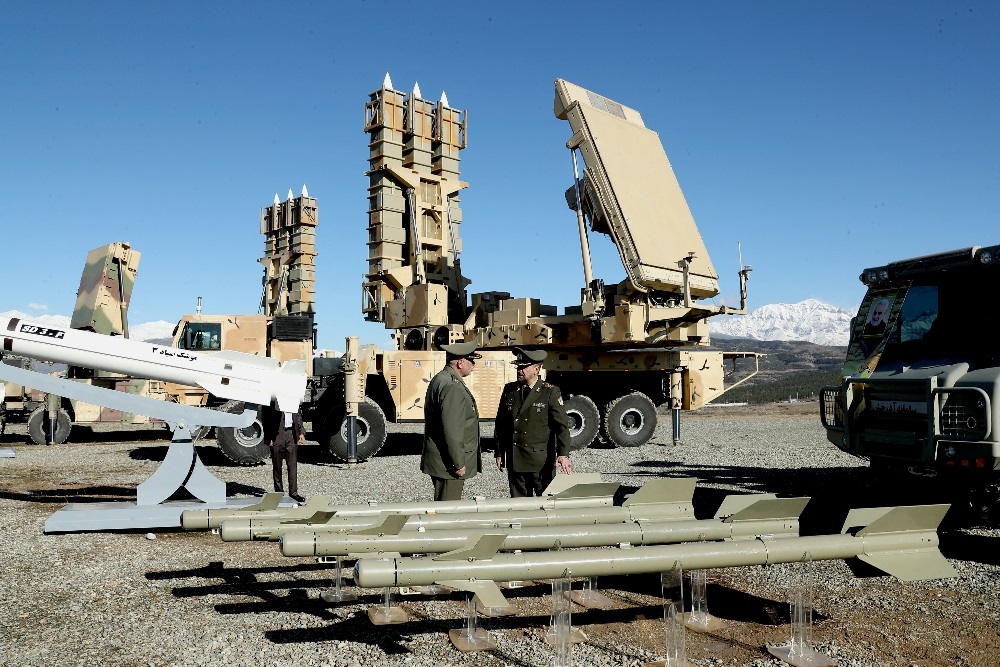
This handout photo provided by Iran's Ministry of Defense on February 17, 2024 shows an officer standing next to a Sayyad-3 missile during the unveiling ceremony of the Arman defense system.
Iranian Ministry of Defense/AFP
- Tensions remain high in the Middle East as Iran unveils new weapons in the ongoing war between Israel and the Iranian-backed Hamas.
- Tehran insists its nuclear program is peaceful and denies seeking a nuclear bomb.
- The Arman missile system was unveiled on Saturday and is said to have “medium range and high altitude, capable of identifying targets 180 kilometers away.”
Iran announced two new air defense systems on Saturday, state media reported, as tensions in the Middle East escalate over the Gaza conflict.
The state-run IRNA news agency said, “The Arman anti-ballistic missile system and Azaraksh low-altitude air defense system built by the Ministry of Defense were unveiled this morning.''
The unveiling of the new weapon comes as tensions in the region rise as the war between Israel and Tehran-backed Hamas enters its fifth month.
Even before the war, Israel and Iran were implacable enemies, with Israel fiercely opposed to Tehran's nuclear program.
In 2023, Israeli Prime Minister Benjamin Netanyahu called for a “credible military threat” to prevent Iran from acquiring nuclear weapons.
The Iranian government has always maintained that its nuclear program is peaceful and denies developing a nuclear bomb.
Read | Houthis attack cargo ship bound for Iran, US military says
The Arman missile system unveiled on Saturday “has medium range and high altitude and is capable of identifying targets at 180 kilometers and attacking and destroying them at 120 kilometers,” Defense Minister Mohammad Reza Ashtiani said. IRNA reported that he said this at the unveiling ceremony.
The agency said the system can attack “six targets simultaneously,” while the Azaraksh defense system can be mounted on multiple vehicle types and “detects and tracks targets using radar, electro-optical systems, and thermal seekers.” said.
Iran praised Hamas's Oct. 7 attack but denied involvement, but Iranian-backed militant groups in Syria, Lebanon, Iraq and Yemen have been deployed by the U.S. and anti-jihadists in Iraq and Syria. They are intensifying their attacks on the Allied forces.
One such attack on a Jordanian base on January 28 killed three US military personnel, prompting the US government to launch its own strikes against pro-Iranian targets in Syria and Iraq. .
The United States, along with the United Kingdom, has launched repeated attacks against Yemen's Iranian-backed Houthis in response to their persistent attacks on commercial ships.
The Houthis claim the Red Sea attack is in solidarity with Palestinians in war-torn Gaza.

